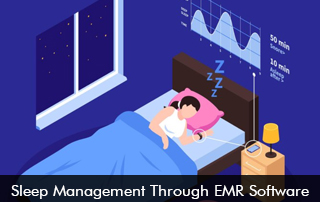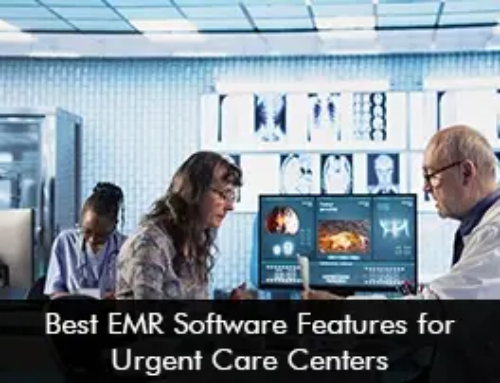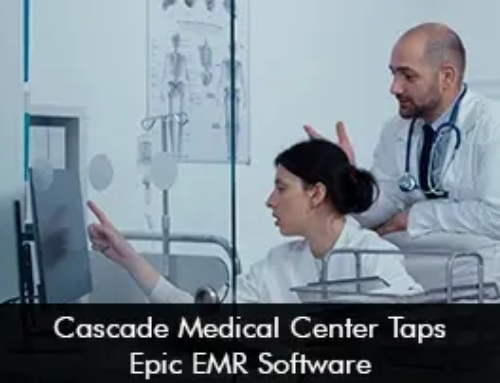Quality sleep is not just a luxury but a fundamental necessity for maintaining overall well-being. Fortunately, with advancements in technology, particularly in EMR software, healthcare providers now have powerful tools at their disposal to better manage and treat sleep-related issues.
Understanding Sleep Disorders
Before delving into how EMR software can aid in sleep management, it’s crucial to grasp the landscape of sleep disorders. From insomnia and sleep apnea to restless leg syndrome and narcolepsy, there exists a wide spectrum of sleep-related issues, each with its unique challenges and treatment modalities.
These disorders not only impair an individual’s ability to function optimally during waking hours but can also contribute to a myriad of health complications, including cardiovascular diseases, obesity, diabetes, and mental health disorders.
The Role of EMR Software
EMR software serves as the cornerstone of modern healthcare systems, streamlining clinical workflows, enhancing communication among healthcare providers, and improving patient outcomes. When it comes to sleep management, EMR software plays a pivotal role in several key areas:
Comprehensive Patient Profiles
EMR systems compile comprehensive patient profiles that encompass medical history, demographic information, diagnostic results, and treatment plans. This holistic view of the patient allows healthcare providers to identify potential risk factors and tailor interventions accordingly.
In the context of sleep management, EMR software enables clinicians to document detailed sleep histories, including sleep patterns, duration, quality, and any associated symptoms or comorbidities. By having this information readily accessible, healthcare providers can make more informed decisions and develop personalized treatment strategies.
EMR Software Integrated Sleep Assessments
Many EMR platforms offer integrated sleep assessment tools that facilitate the systematic evaluation of sleep disorders. These assessments may include standardized questionnaires, such as the Epworth Sleepiness Scale or the Pittsburgh Sleep Quality Index, which help gauge the severity of symptoms and monitor treatment progress over time.
By incorporating these assessments into the EMR workflow, healthcare providers can efficiently screen patients for sleep disorders during routine visits, identify red flags early on, and initiate appropriate interventions promptly.
Seamless Collaboration and Referrals
Effective sleep management often requires a multidisciplinary approach involving various healthcare professionals, including primary care physicians, sleep specialists, pulmonologists, psychologists, and dietitians, among others.
EMR software facilitates seamless collaboration and referrals by enabling secure communication and information sharing across different healthcare settings. Whether it’s sending referral requests, sharing diagnostic reports, or consulting with specialists remotely, EMR systems streamline the referral process, ensuring timely access to specialized care for patients with sleep disorders.
EMR Software Data-Driven Decision Making
One of the most significant advantages of EMR software is its ability to generate actionable insights from vast amounts of clinical data. Through advanced analytics and reporting capabilities, EMR systems empower healthcare providers to identify trends, track outcomes, and measure the effectiveness of interventions in real time.
In the context of sleep management, EMR analytics can help identify population-level trends in sleep disorders, evaluate the impact of lifestyle modifications or pharmacological interventions, and optimize treatment protocols based on evidence-based practices.
Patient Engagement and Education
Empowering patients to take an active role in managing their sleep health is paramount to long-term success. EMR software facilitates patient engagement and education through various channels, including patient portals, educational resources, and interactive tools.
By providing patients with access to their sleep data, treatment plans, and educational materials, EMR systems empower them to make informed decisions, adhere to prescribed therapies, and adopt healthy sleep habits. Moreover, features such as secure messaging and telehealth capabilities enable ongoing communication between patients and healthcare providers, fostering a collaborative care environment.
Future Directions and Challenges to Sleep Disorder EMR Software
While EMR software holds immense promise in revolutionizing sleep management, several challenges and opportunities lie ahead. Integration with wearable devices and home monitoring technologies, interoperability across different healthcare systems, and addressing privacy and security concerns are among the key areas that require further attention and innovation.
Moreover, as our understanding of sleep disorders continues to evolve, EMR software must adapt to incorporate emerging research findings and best practices into clinical workflows. This necessitates ongoing collaboration between software developers, healthcare providers, researchers, and policymakers to ensure that EMR solutions remain at the forefront of sleep management.








